Birth trauma happens when someone experiences a deeply distressing or disturbing birth. Sometimes birth trauma can result from a physically traumatic experience, but more often than not, birth trauma leaves few visible scars.
One woman may experience feelings of trauma after a seemingly “easy” and straightforward vaginal birth, and yet another may effortlessly breeze through recovery from a cesarean. Birth trauma is no respecter of persons or birth plans.
Nobody wants to experience birth trauma and really, nobody wants to talk about it either. Frankly, I’m impressed you’re on this website reading this blog post. What that tells me is that you’re the type of person that is willing to do the work to have a good birth experience and perhaps even willing to redefine what a “good birth” looks like. *cyber fist bumps*
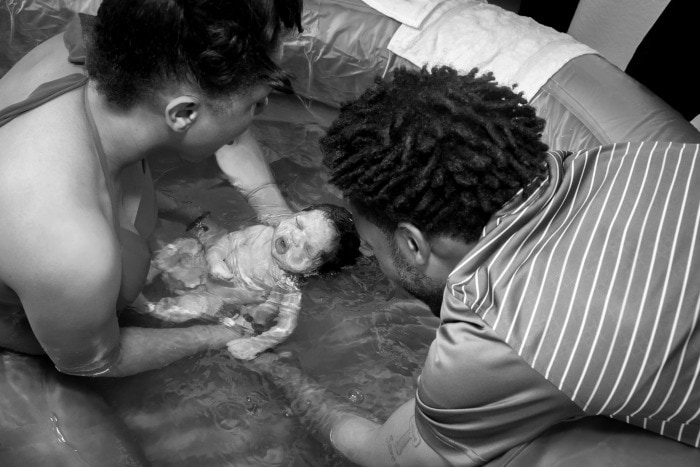
Want to Know a Secret?
Want to know a secret? I think most women experience some sort of trauma during their birth experiences and that it can’t be prevented. I also think that it’s unwise to try to prevent 100% of the hard parts of birth.
These harrowing experiences push us past our breaking points, redefine our limits, force us to accept help from others, allow us to experience healing, and create a depth of character that wouldn’t otherwise be attainable. Our births can help make us into the kind of women and mothers we were created to be – if we let them.
Have you ever spoken with a woman that had a *really* hard birth, but when sharing her story it was evident it changed her for the better? There was something about her that told you she was unwilling to sit in bitterness, or let her anger break her. She would not be ruled by fear. It was clear she was working through her trauma and experiencing healing. She had kicked her birth trauma in the ass.
Kick Birth Trauma in the Ass
Kicking birth trauma in the ass doesn’t mean we’re trying to making it go away. Instead, we’re creating less opportunity for it, but also being open to it refining our character to make us the women and mothers we were created to be.
This post is specifically for first time mamas who’ve never given birth and hope to avoid a traumatic birth experience. However, if you’ve experienced a traumatic first birth and are preparing for a second birth, head on over here and read this first.
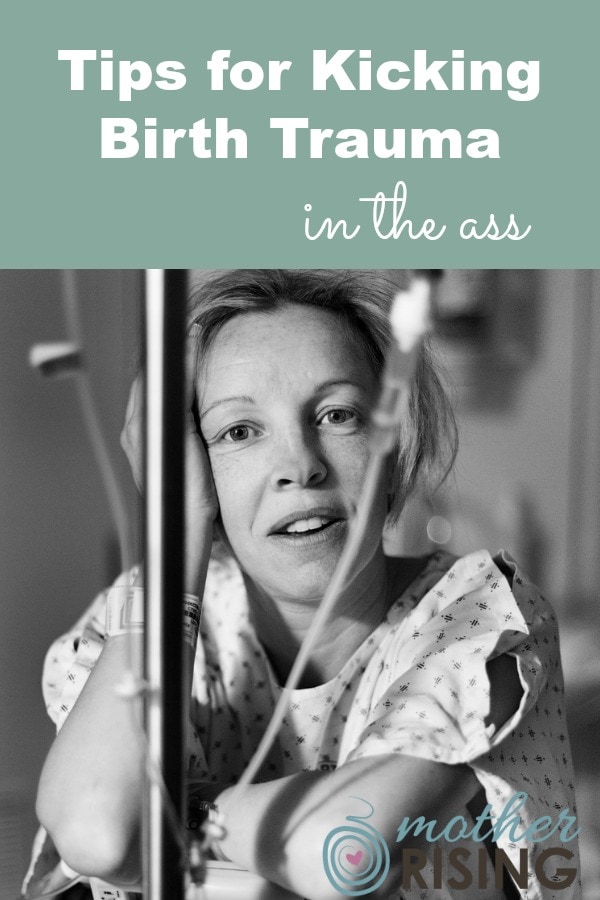
Build a Rock Star Birth Team
Having a rock star birth team can help reduce trauma, but also help you through the hard parts of birth when they happen.
Hire a Solid Care Provider
One of the most influential people in the life of an expecting mother is her care provider. How they practice and through the things they say and do, a care provider has the capability to increase and decrease birth trauma. Since the OBGYN or midwife a woman chooses so profoundly impacts her pregnancy, birth, and postpartum experience, it makes sense to choose this person wisely.
Surprisingly, sometimes the gynecologist we had in college or the midwife your co-worker used just doesn’t cut it for pregnancy care. (It may be time to fire your OB (or midwife!) and move on.)
Ladies, this is not the time to choose or stay with a care provider because you want to be “nice” or you “wouldn’t want to hurt someone’s feelings”. It’s so much bigger than that.
Choose a care provider that makes an effort to get to know you during prenatal visits, listens, uses evidence based practices, etc. Steer clear of care providers that make your internal warning bells go off!
Your baby only gets one birth. You only get one first birth. You are worth it!

Hire a Birth Doula
Here is an example of how a doula can reduce birth trauma. For more information about doulas, and to figure out if one would be a good fit for you, head on over here.
A Short Doula Story
I was doula awhile back for these first time parents who were navigating the unknowns of an induction. This was an unusual situation, as I was backing up another doula because she was out of town. Other than a phone conversation and texting back and forth, I had never met this couple before.
Early one morning I got a phone call from the dad asking me to come because the contractions she was experiencing from cervadil (a drug often used at the beginning of an induction to soften and prepare the cervix for pitocin) were way more than they had expected or could handle. (When a dad contacts me rather than my client, I know things are pretty serious.) I quickly went to be with them.
When I arrived, my client was lying in bed, nauseated, and writhing in pain. Her husband looked shocked, concerned, exhausted, and defeated all at once. This had been going on through much of the night. Her nurse explained that her body was hyper-stimulated from the cervadil, causing long contractions 2-3 minutes apart, but were unfortunately not dilating her cervix. Everyone was at a loss and mama was suffering.
I Gave Them Hope
After I put my stuff down, I sat on the end of her bed, put my hands on her legs and told her, “we’re going to try some things”. With her eyes closed, and feeling beyond terrible, she replied, “ok”. I gave them hope.
I started massaging her legs and immediately felt her body relax. After that, I helped her with her breathing, teaching her how to do breath awareness. She became relaxed, and better able to cope with the transition-like contractions she was experiencing.
Eventually, this warrior-mama was able to sit up and get out of bed. We tried changing positions, using a birthing ball, and even the tub for pain coping. Over time her body relaxed and a more normal labor pattern presented itself.

Manage Expectations
Birth can be traumatic when how we expected, planned, and hoped our birth would be, does not line up with what actually happened.
Expect the Unexpected
It is a safe bet for parents to expect the unexpected at birth. It’s impossible to know how or what won’t go according to plan, but for things to not follow our plans to a T – that we can bet on.
This is quite challenging! Our whole lives we may have created goals, mapped out milestones to achieve said goals, and more often than not, achieved what we wanted!
Birth, on the other hand, refuses to be so linear. Sure, the lessons we learn through birth are about hard work and determination, but they’re also about surrender, how to know what to do when you don’t know what to do, and moving beyond our perceived limits. (Which are perfect lessons for new parents.)
Expect Birth to be Painful
Most women experience intense pain during their birthing experiences. I think it’s naive to expect a painless birth, and misleading for me to encourage you to plan for one. The further a person’s expectations are away from the reality of a painful birth, the more potential they have for an overwhelming, perhaps even traumatic, physical experience.
My advice to you is to take a quality childbirth class that teaches birth is hard, it hurts, but that you can do it! Learn comfort measures for labor such as breath awareness, position changes, and using tools like a birthing ball. And of course, hire a doula. 🙂
Birth Plans Aren’t Contracts
I don’t enthusiastically encourage creating a birth plan with the parents in my childbirth classes and even my doula clients. One reason is because I dislike the negative responses from nurses in the birth room and how they sometimes put my clients in a “one of those women” box.
Also, I am not a fan of how creating a birth plan makes some moms feel like they can control their births. It’s important to understand that a birth plan is not a contract with your care provider (or the universe) to have the kind of hospital birth you desire.
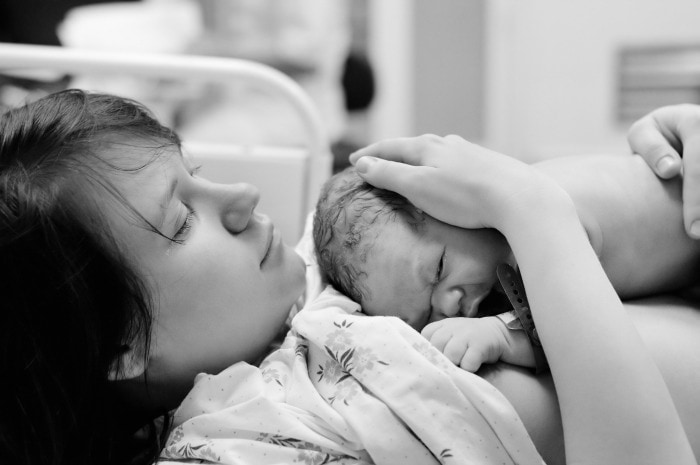
You can greatly influence your birth, but in the end, you simply cannot control it.
When creating a birth plan, there is a temptation to feel more in control of the people in the birth room and how the birth will unfold. However, I encourage mothers to think of a birth plan more as a tool for communication during pregnancy and birth rather than a false sense of control over a particular outcome.
Prepare for a Cesarean
Women planning for a natural childbirth don’t typically also prepare for a cesarean birth. Most women think “oh, that won’t happen to me.” Other women may even think that preparing for a cesarean might make a cesarean more likely to happen (which simply isn’t true)… and so they do nothing to prepare.
So what happens when record high cesarean rates mix with parents who don’t prepare for a cesarean birth? You guessed it, a little bit of trauma. Ultimately, what we end up with is countless parents unprepared and caught off guard when the unexpected happens – a cesarean birth.
It’s important to figure out if a cesarean birth were to become your next best thing, what to expect but also ways to make the experience a little more of a birth and a little less of a medical event. Head on over here to learn about how to prepare for a cesarean without expecting one.
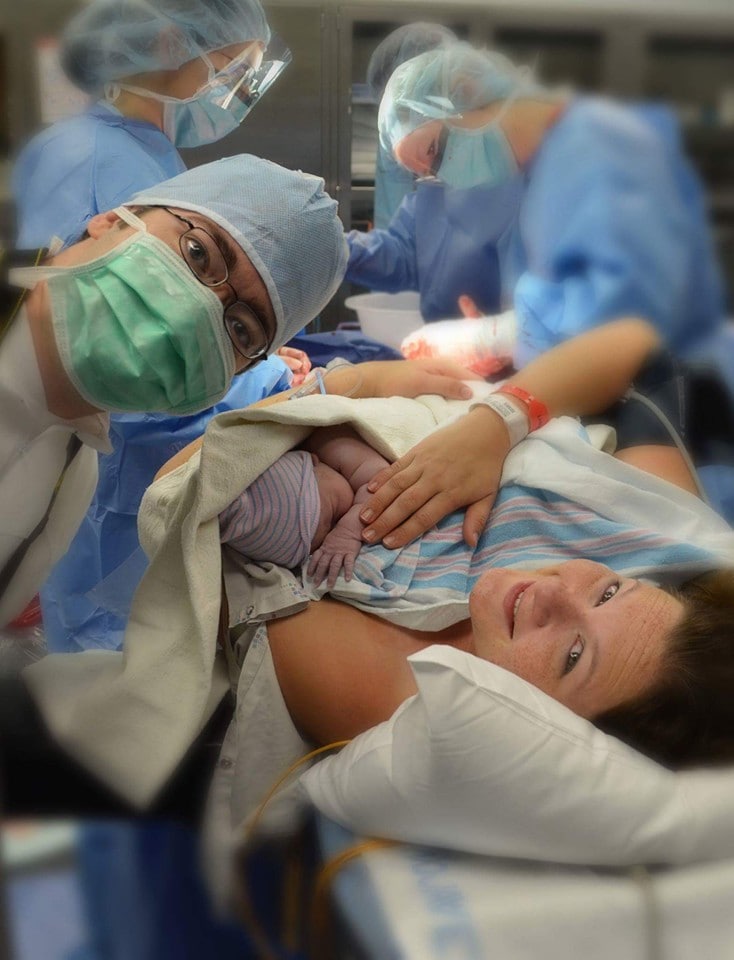
When the Unexpected Happens
Previously I mentioned that it is a sure thing for parents to experience some sort of the unexpected at every birth. But what should parents do when an unwanted medical procedure or unwished for event begins to unfold? How do parents reduce birth trauma in situations like this?
Stay Involved
One thing parents can do in these challenging situations to reduce birth trauma is to continue to be an integral part of the decision making process. If and when plans change, don’t give up, roll over, and check out. Stay involved. (SOURCE, SOURCE)
I once had a doula client that was expecting her first baby. She planned on laboring at home as long as possible, heading to the hospital when her contractions were close together, and having a natural, vaginal birth in the hospital. However, when she got to the hospital her baby was having consistent heart decelerations. This was definitely not part of her plan.
Not knowing what else to do, she internally gave up and just accepted whatever came her way without asking questions or being involved in the decision making process. For her, that was one of her biggest regrets, and some of what contributed to her negative experiences at her first birth. Sure, there was more to it than that, but she confided in me that she wished she didn’t give up – but instead kept asking questions, and involving herself in the decision making process.

Use Your Doula
I will say, however, that having a doula present makes this extremely difficult task – continuing to be a part of the decision making process even when plans change – a little bit easier. When things come up, as a doula I often ask my clients if they have any additional questions about what is happening, encourage dialogue between care providers, again when care providers are out of the room, and remind them of their options, etc.
(Here’s a really neat way to remember how to ask questions and get the information needed in those heated moments. Practice it with your partner!)
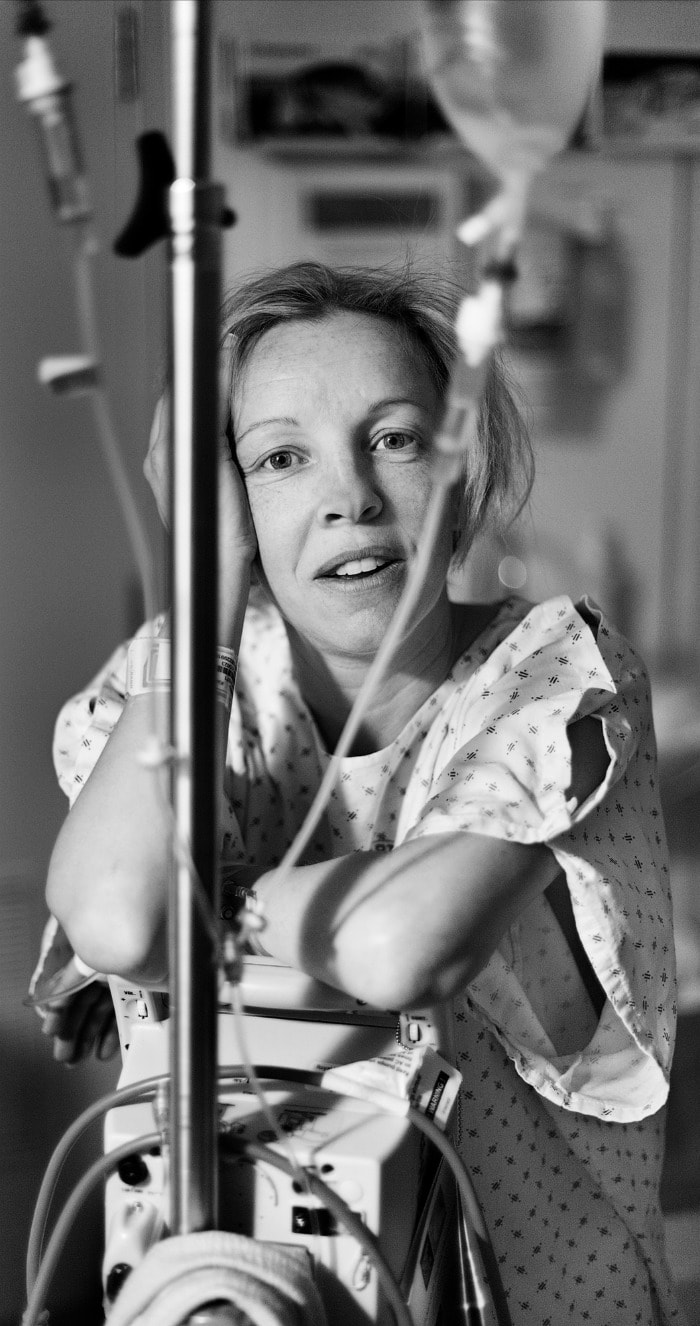
Pursue Deep Listening
After birth, when all is said and done, the hard work of moving through birth trauma begins. No matter how things panned out or went down, expect the need to process what happened. And remember, even if your birth looked like every woman’s birth fantasy, there’s still a good possibility you’ll need to process certain parts of it.
As the days and weeks pass, bits and pieces of your ordeal will come up. Sometimes this happens when speaking with those that were present, or maybe while breastfeeding in the middle of the night when everything is quiet and nobody else is around. This is pretty normal.
Listen to Yourself
When recalling the bits and pieces of your birth, one of the first things to notice is what you say to yourself about yourself. Pay attention to your I AM statements. If you notice that you’re having an emotional reaction to a memory of your birth, really make a conscious effort to notice these I AM statements.
An I AM statement is a belief you have about yourself that you say to yourself (internally), often times without any awareness of it even happening. For example: I am patient, I am weak, I am doing my best, I am a failure, I did my best, I am a good mother, or I am loving my baby.
As you notice these beliefs, write them down. Listening, becoming aware, and then writing down what you notice will begin a practice of deep listening with yourself.
Now that you’ve created a list of these I AM statements, consider whether or not if these statements are working for you. Do these beliefs actually align with the truth? What is the truth about yourself? At this point it may be helpful to share these beliefs with your support group or a safe person.

Share Your Story
Finally, a powerful way to kick birth trauma in the ass is to share your story. To be listened to, really heard, and validated is incredibly healing.
TIP: When sharing your story tell it from your perspective. For example, instead of saying that the doctor was a jerk, try saying when the doctor said this and made this decision it made me feel _________ and I _________.
For some, this may be as simple as sharing your story with a close friend, or other safe person. But for others, it may be necessary to seek professional help. If this is the case, I highly recommend seeing a therapist that is EMDR certified. These wonderful people specialize in helping people work through trauma. EMDR helps the brain figure out what to do what what happened. I have personal experience with EMDR and am a big fan. 🙂
Kick Birth Trauma in the Ass
Birth trauma is no respecter of persons or birth plans. It doesn’t matter if you gave birth with a unicorn by your side, on a grassy knoll in a magical forest, and everyone keeps telling you how wonderful everything was. I mean, hey, maybe it turns out that unicorns are kinda creepy and not at all what you thought they would be. And maybe everything wasn’t so wonderful. That’s ok.
But don’t let that be the end of your story. A traumatic birth has the opportunity to be a turning point in the life of a new parent. The hard parts of birth and life can change you for the better, and create depth of character that would not otherwise be there.
Kicking birth trauma in the ass requires courage. And I believe you have what it takes.
